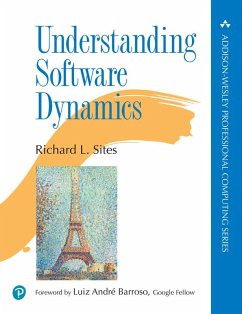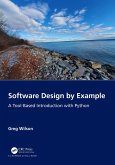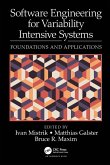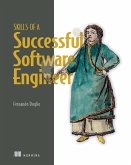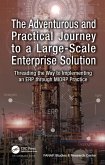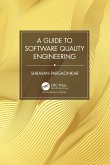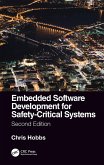An Expert Guide to Software Performance Optimization From mobile and cloud apps to video games to driverless vehicle control, more and more software is time-constrained: It must deliver reliable results seamlessly, consistently, and virtually instantaneously. If it doesn't, customers are unhappy--and sometimes lives are put at risk. When complex software underperforms or fails, software engineers need to identify and address the root causes. This is difficult and, historically, few tools have been available to help. In Understanding Software Dynamics, performance expert Richard L. Sites tackles the problem head on, offering expert methods and advanced tools for understanding complex, time-constrained software dynamics, improving reliability and troubleshooting challenging performance problems. Sites draws on several decades of experience pioneering software performance optimization, as well as extensive experience teaching graduate-level developers. He introduces principles and techniques for use in any environment, from embedded devices to datacenters, illuminating them with examples based on x86 or ARM processors running Linux and linked by Ethernet. He also guides readers through building and applying a powerful, new, extremely low-overhead open-source software tool, KUtrace, to precisely trace executions on every CPU core. Using insights gleaned from this tool, readers can apply nuanced solutions--not merely brute-force techniques such as turning off caches or cores.
- Measure and address issues associated with CPUs, memory, disk/SSD, networks, and their interactions
- Fix programs that are always too slow, and those that sometimes lag for no apparent reason
- Design useful observability, logging, and time-stamping capabilities into your code
- Reason more effectively about performance data to see why reality differs from expectations
- Identify problems such as excess execution, slow instruction execution, waiting for resources, and software locks
Understanding Software Dynamics will be valuable to experienced software professionals, including application and OS developers, hardware and system architects, real-time system designers, and game developers, as well as advanced students. Register your book for convenient access to downloads, updates, and/or corrections as they become available. See inside book for details.
Dieser Download kann aus rechtlichen Gründen nur mit Rechnungsadresse in A, B, BG, CY, CZ, D, DK, EW, E, FIN, F, GR, HR, H, IRL, I, LT, L, LR, M, NL, PL, P, R, S, SLO, SK ausgeliefert werden.

